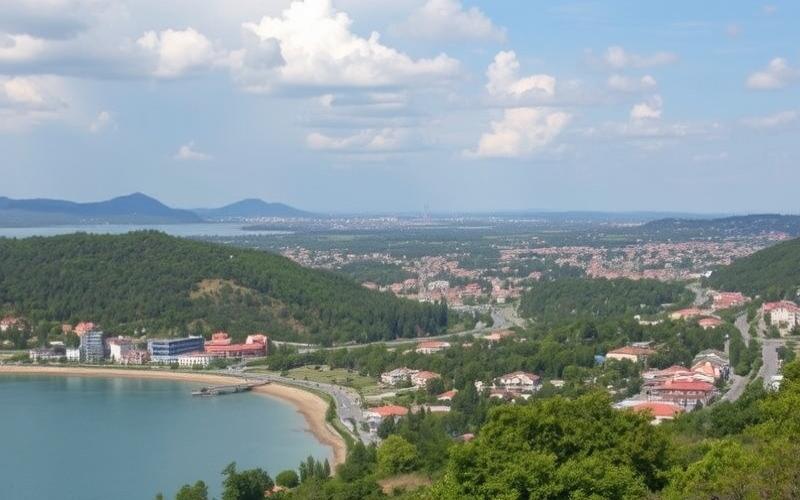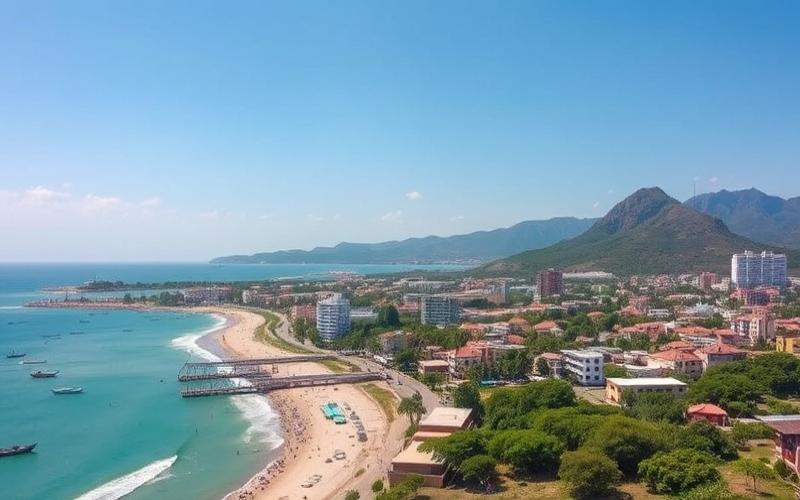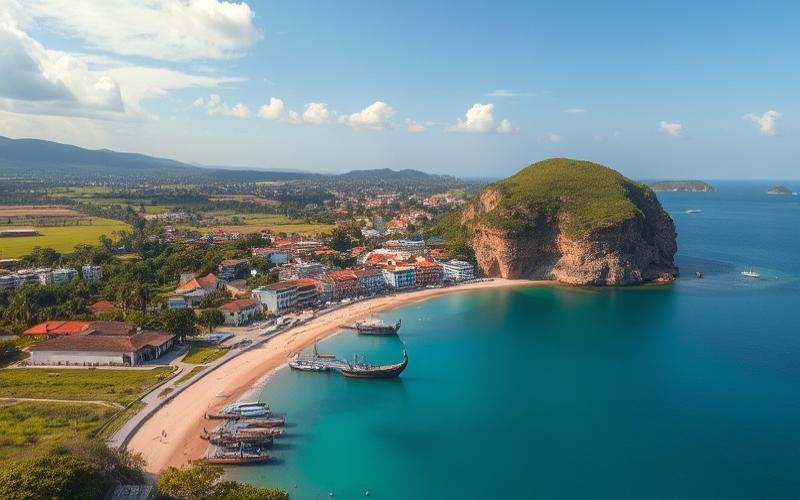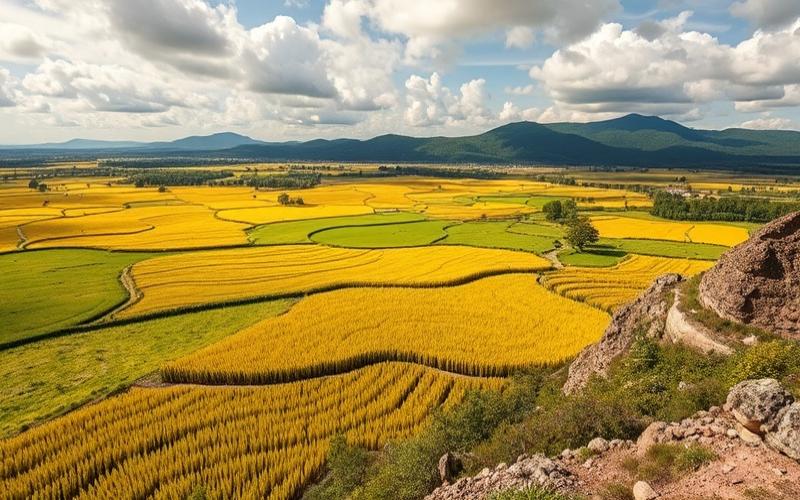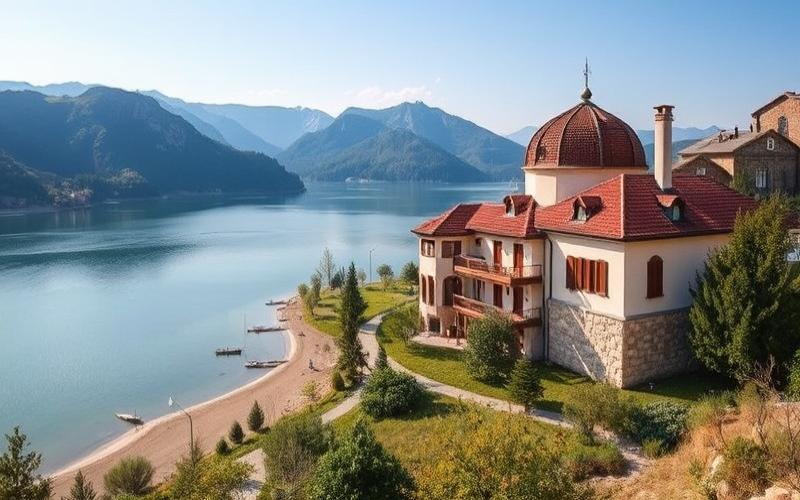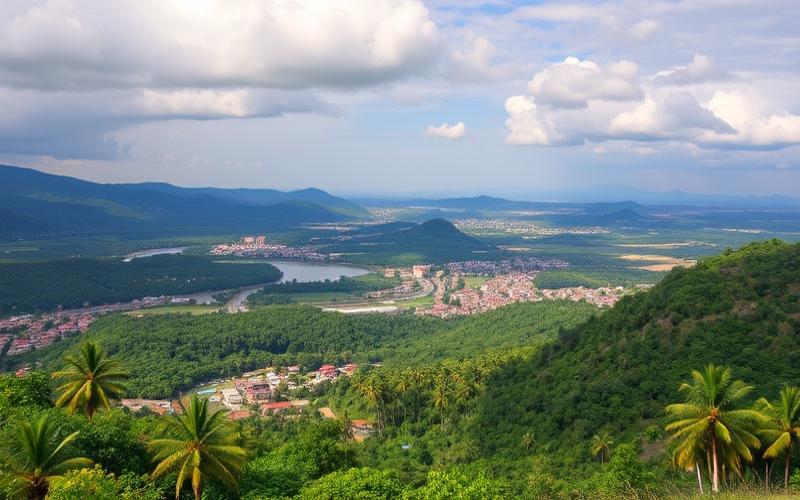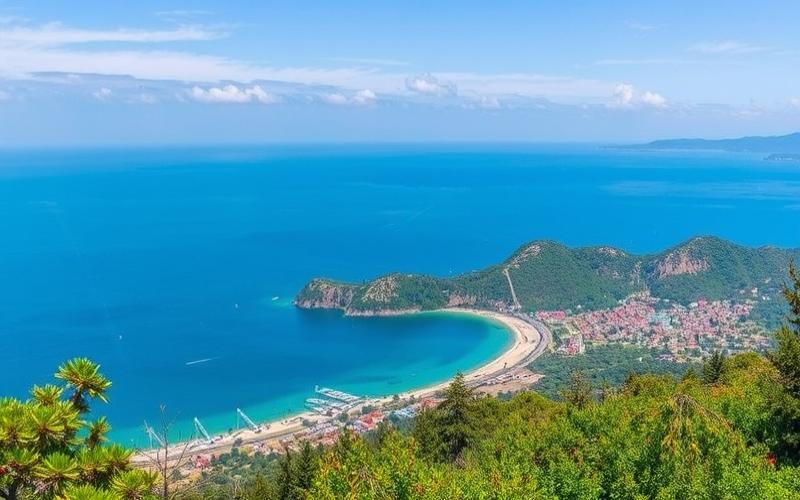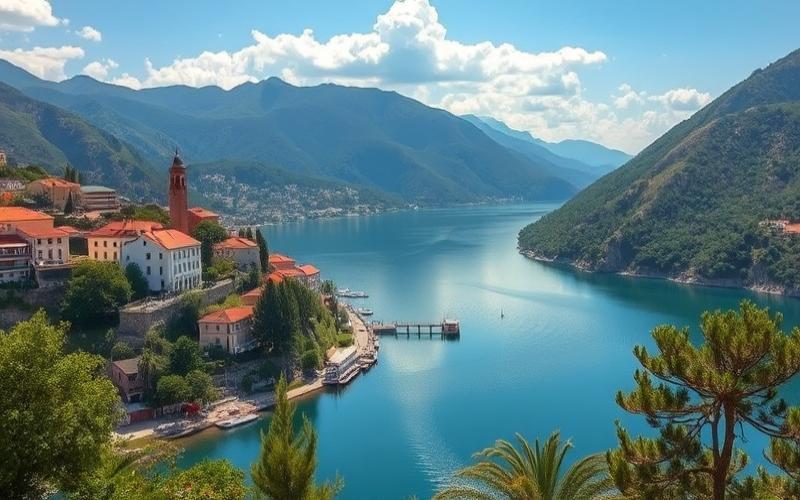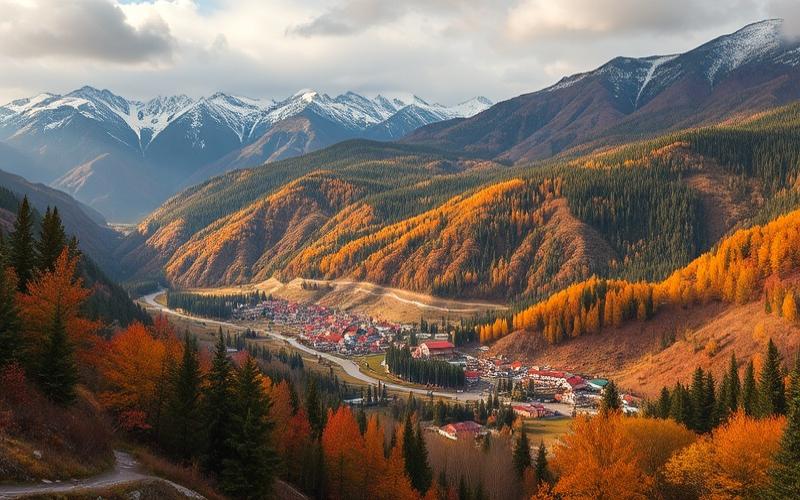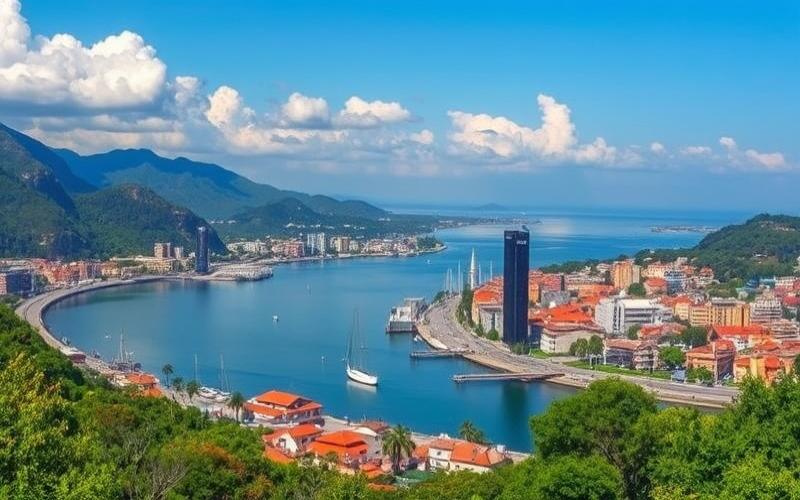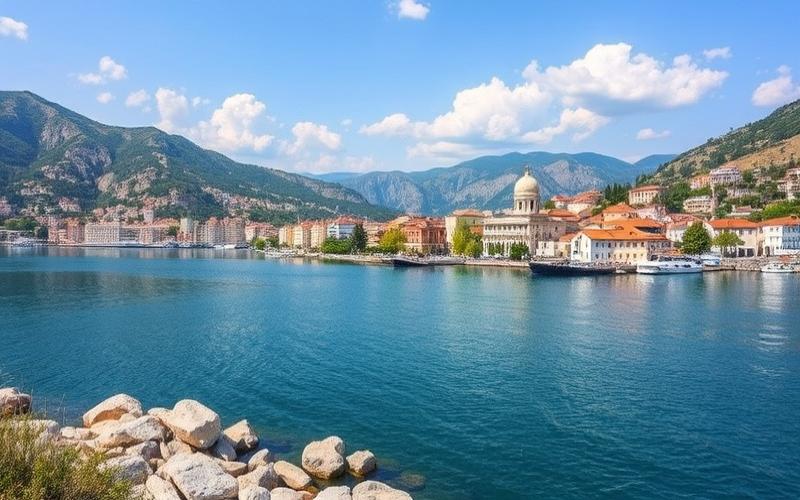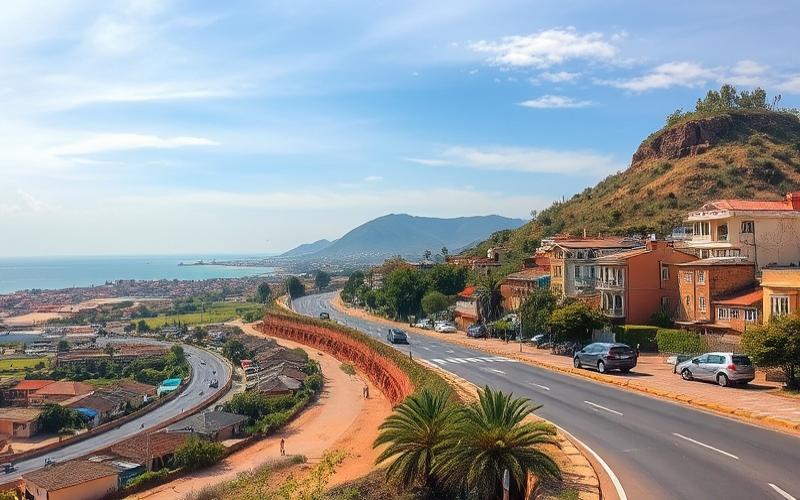
 Published on and written by Cyril Jarnias
Published on and written by Cyril Jarnias
Buying Agricultural Land in North Macedonia
Buying agricultural land in North Macedonia can be an interesting opportunity for those looking to invest in a country where agriculture plays a crucial role in the economy. However, before embarking on this venture, it’s essential to understand the legal specifics governing this market.
The legal framework offers various forms of protection and benefits for foreign investors, but it’s crucial to familiarize yourself with local regulations and acquisition procedures to avoid potential pitfalls.
This article aims to provide a detailed overview of the necessary steps, common legal constraints, as well as tips for successfully navigating the purchase process, while highlighting the unique opportunities this country offers to savvy investors.
Overview of Laws on Buying Agricultural Land in North Macedonia
Main Legislation Governing Agricultural Land Purchase in North Macedonia
The main texts governing the acquisition of agricultural land in North Macedonia aim to protect the agricultural sector while allowing some openness to foreign investors under certain conditions. The laws define the types of land that can be purchased, registration procedures, and specific restrictions for certain buyers.
| Land Type | Legal Status | Purchase Possibility by Foreigners |
|---|---|---|
| Private agricultural land | Individual ownership | Subject to conditions |
| State-owned land | Public or state property | Generally not transferable |
Restrictions on Foreign Buyers
- EU/OECD Nationals: benefit from more favorable conditions for acquiring real estate, including agricultural land.
- Non-EU/OECD Nationals: subject to the principle of reciprocity; they can only purchase if a Macedonian citizen can acquire equivalent property in their home country.
- There are also restrictions regarding land area and intended use (strictly agricultural purpose).
Registration Procedure and Documentation Requirements
The standard procedure includes several essential steps:
- Verification of land title with the national cadastre (Real Estate Cadastre Agency).
- Notarized signature with authentic deed.
- Filing and official registration with competent cadastral authorities.
- Possible acquisition of additional administrative permits depending on location or specific land type.
Generally required documents:
- Valid passport or national ID
- Proof of financing or preliminary contract
- Recent cadastral extract
- Notarized agreement
The average timeframe between initial agreement and final registration ranges from 4 to 8 weeks, depending on case complexity.
Taxes and Fees Related to Acquisition
Main associated fees include:
- Property transfer tax (proportional to declared value)
- Applicable VAT for certain transaction types
- Fixed notary fees
- Administrative fees for registration
A real estate investment exceeding approximately €40,000 may qualify for a temporary residence permit under certain conditions.
Recent Legislative Reforms
Recent efforts focus on better land consolidation to optimize agricultural use, promote productive investments, limit excessive fragmentation of existing family farms, and progressively modernize the national digital cadastre.
“Land consolidation is now encouraged through various government measures to increase productivity in the rural sector.”
Involved Government Institutions
Main concerned institutions are:
- The National Real Estate Cadastre Agency
- The Macedonian Ministry of Agriculture
- Local tax services for associated tax collection
Practical Implications & Recommendations for Potential Investors
- Thoroughly verify all restrictive clauses related to land status beforehand.
- Prefer local notarial assistance experienced in this specific type of transaction.
- Seek advice from local consular chambers before any significant financial commitment.
- Anticipate varying administrative delays depending on local digitalization level.
To secure land acquisition in North Macedonia, it’s recommended to perform all cadastral-legal verifications before any binding signature.
Good to Know:
In North Macedonia, purchasing agricultural land is primarily governed by the Agricultural Land Law, with notable restrictions for foreign buyers who often can only acquire land indirectly through Macedonian entities. Recent reforms have simplified some procedures, although property registration with the Agricultural Land Management Agency remains mandatory, requiring documents such as proof of nationality and legal capacity verification. Purchasable land types mainly include those classified as arable agricultural land. Acquisition timelines range between 30 and 90 days, with property and stamp taxes adding to the total cost. Investors must navigate comprehensive legal frameworks relying on local advisors to avoid delays. Tips include proactive verification of land history to prevent disputes.
Understanding Rural Zoning and Its Implications
Rural zoning in North Macedonia refers to the administrative and regulatory division of rural territories according to their primary purpose, determined by local authorities within territorial planning. This system aims to preserve agricultural use, protect natural resources, and guide rural development to ensure sustainable land management.
Role of Rural Zoning:
- Define permitted uses for each plot (agriculture, conservation, mixed activities).
- Prevent inappropriate or illegal land use.
- Support coherent territorial planning by municipalities.
Common Rural Zoning Categories:
| Category | Primary Use | Main Restrictions |
|---|---|---|
| Intensive agricultural zone | Commercial large-scale crops | Limitation on non-agricultural constructions |
| Protected/conservation zone | Wildlife/flora protection | Prohibition of intensive agriculture/urbanization |
| Mixed-use zone | Agriculture + housing or green tourism | Agricultural activities permitted under conditions |
Concrete Examples:
- Fertile plains like Kočani’s are often classified for intensive agriculture, typically intended for rice or orchards.
- Mountainous or forested areas may be designated as protected zones, with strict restrictions to preserve biodiversity.
- Some peri-urban sectors allow mixed use, permitting small agricultural operations and rural housing under specific regulations.
Legal and Administrative Implications for Buyers:
Purchasing agricultural land involves strict zoning verification with local authorities (municipality, land agency).
Only certain activities are permitted according to zone type; any construction outside regulations may lead to permit cancellation or financial penalties.
Good to Know:
In North Macedonia, rural zoning is an essential component of territorial planning, regulated by local authorities to direct land use for specific purposes. Among zoning categories are lands designated for intensive agriculture, protected zones for wildlife conservation, and mixed-use lands. Zoning dictates which agricultural activities are permitted, directly influencing opportunities and constraints a buyer may encounter. For example, land zoned for intensive agriculture cannot be used for residential purposes without a formal zoning change request, which must be approved by authorities. Non-compliance with zoning can result in penalties, making verification with a notary or specialized real estate agency crucial before purchase. It’s advisable to consult local plans and, if necessary, apply for a permit to modify land use, while inquiring about feasibility criteria and administrative timelines to avoid costly legal complications.
Steps for Zoning Change Request:
- Submit official request to competent municipal authorities with detailed justification (economic project, agricultural innovation…).
- Provide environmental impact studies if necessary.
- Wait for technical opinion then formal decision after possible public consultation.
Practical Tips:
- Always consult the local cadastre before any purchase.
- Engage a lawyer specialized in Macedonian property law for complex transactions.
- Allow significant administrative time for variance requests.
Building Permits: What You Need to Know
Local Regulations Regarding Building Permits on Agricultural Land in North Macedonia
- Authorized constructions on agricultural land are strictly regulated. Only buildings directly related to agricultural operations (barns, greenhouses, housing for farmers) may be permitted.
- For any other construction (industrial or tourist use), a special procedure and additional permits are required.
- Converting agricultural land to buildable zone requires its inclusion in a development perimeter recognized by local authorities and project justification through specific economic or social needs.
Administrative Steps to Submit a Building Permit Application
- Prepare administrative file:
- Land location plan
- Detailed project plans
- Documentation demonstrating connection to agricultural operation
- Preliminary approval from agricultural services if necessary
- Submit application to:
- Competent local municipality or urban planning service
- File review:
- Authorities verify compliance with local regulations and any applicable development plans.
- Expected timelines:
- Processing may take several weeks or even months depending on project complexity and type.
Specific Restrictions or Conditions by Region or Land Type
| Region/Type | Regulatory Particularities |
|---|---|
| Urban-adjacent areas | Possible integration into urban fabric |
| Tourist/mining areas | Specific, often stricter rules |
| Local development plans* | Imposed minimum plot sizes |
*Local Plans may define minimum areas for each buildable plot and restrict certain non-agricultural uses.
Legal Implications for Non-Compliance
- Building without permit results in:
- Immediate work stoppage
- Significant financial penalties (fines)
- Possible obligation to demolish illegal constructions
- In case of repeated offense, possibility of criminal prosecution against operator or owner
Practical Tips to Facilitate Permit Acquisition and Avoid Common Mistakes
Always consult your municipality before any procedure to obtain a precise list of required documents and learn applicable regional specifics.
- Engage a legal expert specialized in local agricultural property law to verify your file’s compliance from the start.
- Carefully prepare all requested technical plans; any omission significantly extends timelines.
- If your project involves partial conversion to non-agricultural activity, seek advisory opinion early from concerned commissions (e.g., rural planning).
- Anticipate often lengthy administrative delays: begin procedures several months before planned work date.
Necessary Contacts
- Local urban planning service / Competent municipality based on exact land location
- Regional agricultural services if construction related to operation
- Lawyers specialized in local property/agricultural law
To maximize your chances, always prioritize early dialogue with these contacts to avoid any regulatory misunderstanding that could block your project.
Good to Know:
In North Macedonia, obtaining a building permit on agricultural land requires knowledge of local restrictions, particularly that authorized constructions are often limited to buildings related to agricultural operations or residential use under specific conditions. To submit an application, you’ll need to go through several administrative steps with the local urban planning service, equipped with documents like the cadastral plan and architectural project, with a waiting period of several months. Regulations may vary by region and land nature, and it’s imperative to comply with construction standards under penalty of fines or demolition orders. To simplify the process, consulting a legal expert in agricultural property law is advised to avoid common mistakes. Finally, regular contact with the local urban planning service facilitates obtaining valuable information regarding regional nuances and required documents.
Precautions to Avoid Risks Related to Non-Buildable Land
- Legal Status Verification:
Before purchasing agricultural land, it’s crucial to consult the cadastre and official land registries to verify the parcel’s legal situation. This step ensures the land isn’t classified as non-buildable or subject to particular environmental restrictions. Cadastral information also reveals the land’s history, current owner, and any existing easements or disputes.
| Documents to Consult | Main Objectives |
|---|---|
| Cadastre | Legal status, permitted use |
| Land registry | Ownership, mortgages, easements |
| Local plans | Urban/environmental restrictions |
- Consult Local Experts:
Engaging a lawyer specialized in Macedonian property law provides better understanding of local legislation and reduces legal risks related to acquisition. A legal advisor can also analyze contracts, identify any restrictive clauses, and assist with administrative procedures specific to the local context.
- Technical Studies:
It’s highly recommended to conduct geological and environmental studies to assess:
- Soil quality for agricultural use.
- Natural risks (floods, landslides).
- Technical feasibility of potential construction.
These studies also help anticipate potential costs related to site development.
- Urban and Rural Planning:
Urban or rural master plans directly influence the land’s future value and possible uses. Thorough analysis of planning documents reveals whether the area might be subject to:
- Future change of designation (conversion to buildable zone)
- Public or private projects that could impact your investment
- Contact Local Authorities:
Contacting the municipality or urban planning service provides information about:
- Municipal projects (roads, infrastructure)
- Local agricultural policies
- Any development likely to enhance or depreciate the property
Good relationship with authorities also facilitates all subsequent procedures related to necessary permits or authorizations.
- Insurance Importance:
Taking out appropriate insurance protects against several risk types:
- Natural risks (flooding, landslides)
- Regulatory changes affecting land use
- Ownership disputes
Always ensure to obtain a detailed contract from a locally recognized company so your coverage matches specifics identified during previous verifications.
Good to Know:
Before buying agricultural land in North Macedonia, verify legal statuses by consulting the cadastre and land registries to ensure the land isn’t under non-buildable status or subject to environmental restrictions. Consulting a local lawyer specialized in property law is essential to navigate local legislation. Conducting geological and environmental studies will help assess construction and agricultural operation feasibility while identifying potential natural risks. Urban and rural development plans can influence your purchase decision; thus, contact municipal authorities to discuss future projects likely to affect your land. Finally, consider taking out appropriate insurance to cover risks related to non-buildable land, such as floods or legislative changes.
Disclaimer: The information provided on this website is for informational purposes only and does not constitute financial, legal, or professional advice. We encourage you to consult qualified experts before making any investment, real estate, or expatriation decisions. Although we strive to maintain up-to-date and accurate information, we do not guarantee the completeness, accuracy, or timeliness of the proposed content. As investment and expatriation involve risks, we disclaim any liability for potential losses or damages arising from the use of this site. Your use of this site confirms your acceptance of these terms and your understanding of the associated risks.






